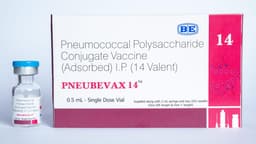Home / Health / COVID Tech Fights Snakebite Damage
COVID Tech Fights Snakebite Damage
24 Nov
Summary
- mRNA technology from COVID vaccines shows promise against snakebite injuries.
- This new approach could significantly reduce permanent disabilities from snakebites.
- Researchers hope this tech could also combat toxins from other infections.

Scientists are exploring the potential of mRNA technology, pioneered for COVID-19 vaccines, to mitigate the severe injuries caused by snakebites. Early research indicates this approach can prevent muscle damage and reduce lasting disabilities, offering a significant advancement in treating venomous encounters. The technology aims to trigger the body's cells to produce antibodies specifically targeting venom toxins.
This novel method could overcome limitations of current antivenoms, which struggle to penetrate damaged muscle tissue at the bite site. By generating protective antibodies directly in affected areas, this mRNA-based treatment promises more effective protection. Researchers are optimistic about its potential, noting that the technology might also be applicable to combating toxins from bacterial infections.
While challenges such as antibody development time and storage requirements exist, the potential benefits are substantial. This advancement could drastically reduce the number of permanent disabilities resulting from snakebites globally. The research, conducted by teams at the University of Reading and the Technical University of Denmark, offers a beacon of hope for millions.



